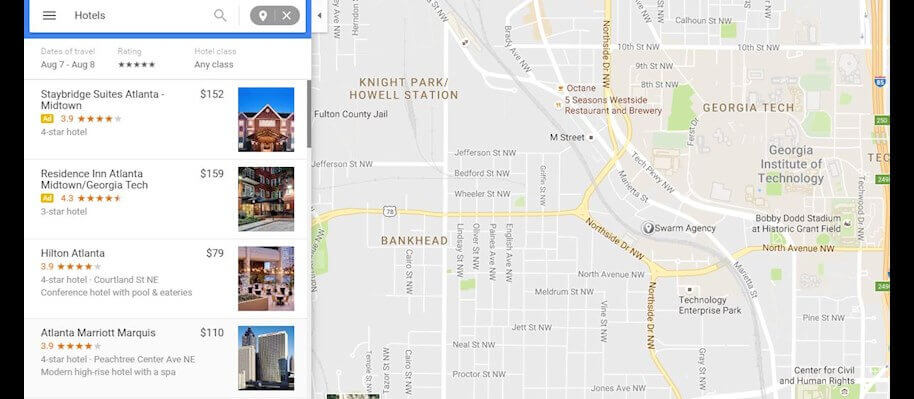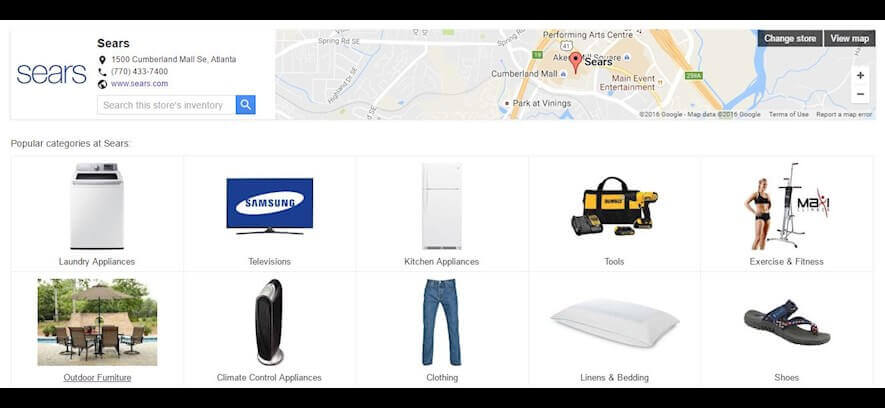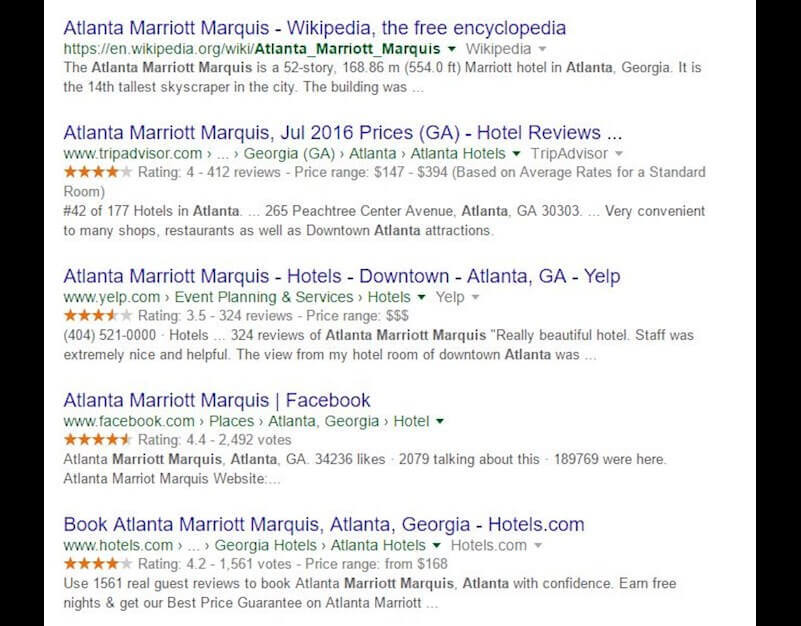Have you noticed that search engines keep increasing their local marketing efforts? As we’ve recently discussed, local search on Google Maps has now become an essential part of its platform—working like its own search engine and including plenty of local advertising opportunities.

Google’s search results (with its algorithms already tweaked to favor local search relevance, distance, and prominence) can even now bring up local product availability. And Google’s Adwords and Analytics tools are following suit to complement these local search trends.

In 2017, search engines will continue to heavily focus on local search results—even if you’re not searching for something specifically local. For example, a search for Kayne West and Taylor Swift may bring up their local concert appearances in addition to news about their feud.
Virtual assistants like Siri, Google Now, Cortana, and Alexa (that also rely more and more on voice search) will learn more and more about us and where we are. Your business needs to not only appear when people have a local need but also when people don’t know they have a local need. These virtual assistants might not be perfect today but they will quickly learn to be more efficient and proactively share search results.
As local marketing becomes more ingrained in our day-to-day online search, we will see other ripple effects in areas like:
- Beacon technology: As local search grows, beacon technology will literally serve more people in innovative ways. Elle Magazine is a great example. BeaconStac reports: “As a part of the beacon-powered ‘Shop Now’ program, Elle made its editors’ product picks available to users on ShopAdvisor, a personal shopping concierge app and RetailMeNot, a mobile coupon app. Any consumer who had opted in for push notifications via RetailMeNot was notified when he/she was already at a store that was listed with one of the products suggested by Elle, via beacons.”
- Mobile payments: Gartner reported late last year that “50 percent of consumers in mature markets will use smartphones or wearables for mobile payments.” Just follow the money—the more visibility in local search results, the more companies will likely get people to pay for products and services on mobile devices.
Mobile apps: Local search and mobile apps will blend more in search results to become seamless. We’re already seeing signs of this trend with apps such as Yelp and TripAdvisor. In 2017, businesses can’t only focus on Google’s local search results without considering local search on other popular or relevant apps.

Check back next Tuesday for our fourth blog post about marketing predictions that will disrupt your world in 2017.
If you missed Part One, read about the blurred lines between marketing and technology coming in 2017.
If you missed Part Two, read about how personalization will continue to revolutionize digital marketing in 2017.
